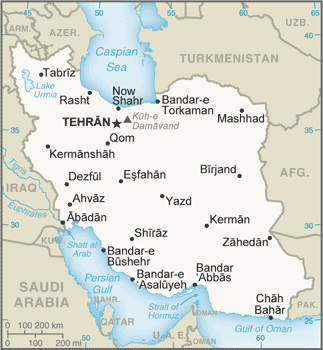 Washington, DC–(ENEWSPF)–August 5, 2015. The Department of State warns U.S. citizens to carefully consider the risks of travel to Iran. Dual national Iranian-American citizens may encounter difficulty in departing Iran. U.S. citizens should stay current with media coverage of local events and carefully consider nonessential travel. This Travel Warning updates the Travel Warning for Iran issued January 16, 2015.
Washington, DC–(ENEWSPF)–August 5, 2015. The Department of State warns U.S. citizens to carefully consider the risks of travel to Iran. Dual national Iranian-American citizens may encounter difficulty in departing Iran. U.S. citizens should stay current with media coverage of local events and carefully consider nonessential travel. This Travel Warning updates the Travel Warning for Iran issued January 16, 2015.
On July 14, 2015, the United States and Iran reached a Joint Comprehensive Plan of Action (JCPOA) to address the international community’s concerns over Iran’s nuclear program. This deal over Iran’s nuclear program does not alter the United States’ assessment of the risks of travel to Iran for U.S. citizens. The United States does not have diplomatic or consular relations with the government of Iran.
Some elements in Iran remain hostile to the United States. As a result, U.S. citizens may be subject to harassment or arrest while traveling or residing in Iran. Since 2009, Iranian authorities have prevented the departure, in some cases for several months, of a number of Iranian-American citizens, including journalists and academics, who traveled to Iran for personal or professional reasons. Iranian authorities also have unjustly detained or imprisoned U.S. citizens on various charges, including espionage and posing a threat to national security. U.S. citizens of Iranian origin should consider the risk of being targeted by authorities before planning travel to Iran. Iranian authorities deny the U.S. Interests Section in Tehran access to imprisoned dual national Iranian-American citizens because Iranian authorities consider them to be solely Iranian citizens; access to U.S. citizens without dual nationality is often denied as well.
The Iranian government continues to repress some minority religious and ethnic groups, including Christians, Baha’i, Arabs, Kurds, Azeris, and others. Consequently, some areas within the country where these minorities reside, including the Baluchistan border area near Pakistan and Afghanistan, the Kurdish northwest of the country, and areas near the Iraqi border, remain unsafe. Iranian authorities have detained and harassed U.S. citizens, particularly those of Iranian origin. Former Muslims who have converted to other religions, religious activists, and persons who encourage Muslims to convert are subject to arrest and prosecution.
The U.S. government does not have diplomatic or consular relations with the Islamic Republic of Iran and therefore cannot provide protection or routine consular services to U.S. citizens in Iran. The Swiss government, acting through its Embassy in Tehran, serves as protecting power for U.S. interests in Iran. The range of consular services provided by the U.S. Interests Section at the Swiss Embassy is limited and may require significantly more processing time than at U.S. embassies or consulates. The Iranian government does not recognize dual citizenship and will not allow the Swiss to provide protective services for U.S. citizens who are also Iranian nationals.
Our ability to assist U.S. citizens in Iran in the event of an emergency is extremely limited. U.S. citizens in Iran should ensure that they have updated documentation at all times and make their own plans in the event of an emergency. For more information, see “What the Department of State Can and Can’t Do in a Crisis” at the Department’s website.
For further information:
See the State Department’s travel website for the Worldwide Caution, Travel Warnings, Travel Alerts, and Iran Country-Specific Information.
Enroll in the Smart Traveler Enrollment Program (STEP) to receive security messages and make it easier to locate you in an emergency.
Contact the the U.S. Interests Section at the Swiss Embassy, located at No. 39, Shahid Mousavi (Golestan 5th), Pasdaran, Tehran. The telephone numbers for the U.S. Interests Section are (+98)(21)2279-3912, (+98)(21)2279-3697,(+98)(21) 2254-2178, and (+98)(21) 2256-5273, fax (+98)(21) 2258-0432, email: [email protected].
Call 1-888-407-4747 toll-free in the United States and Canada or 1-202-501-4444 from other countries from 8:00 a.m. to 8:00 p.m. Eastern Time, Monday through Friday (except U.S. federal holidays).
Follow us on Twitter and Facebook.
Source: www.state.gov








